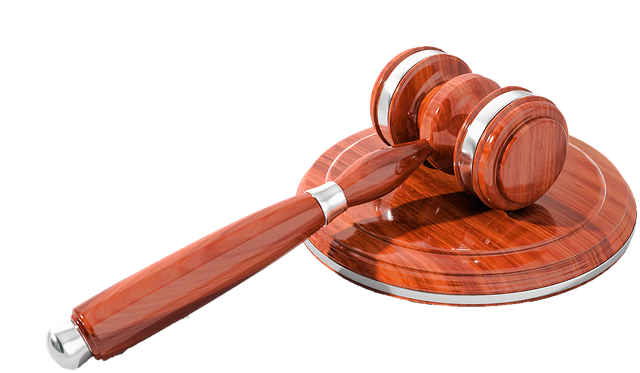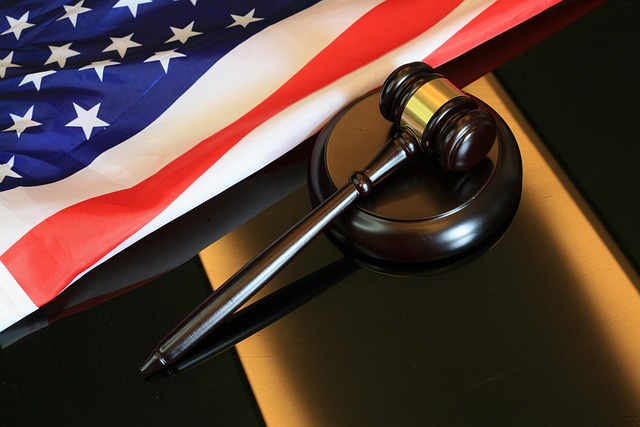Miranda Rights in Criminal Proceedings are a cornerstone of U.S. criminal law, protecting suspects from self-incrimination and ensuring fair treatment during interrogations. Established by the Miranda v. Arizona case (1966), these rights—to remain silent, understand consequences, and consult an attorney—are crucial throughout investigative processes. Strict adherence to their administration is vital for procedural justice, with violations potentially leading to evidence exclusion and significant case impacts. Ongoing debates around interpretation and effectiveness highlight the need for nuanced approaches in criminal law, focusing on merits of cases rather than procedural irregularities.
“Unraveling the intricate web of Miranda Rights in criminal law is essential for understanding fair trials. This article offers a comprehensive guide to these legal protections, delving into their historical roots and evolution. We explore key questions: When are Miranda rights invoked? What challenges do they face? And how do case studies reveal the profound impact of their violations? Through this lens, we dissect the vital role of Miranda warnings in ensuring justice during criminal proceedings.”
- Understanding Miranda Rights: A Legal Perspective
- The History and Evolution of Miranda Warnings
- When and How Are Miranda Rights Invoked?
- Challenges and Debates in Miranda Applications
- Case Studies: Impact of Miranda Rights Violations
Understanding Miranda Rights: A Legal Perspective

Understanding Miranda Rights is a critical aspect of criminal law cases in the United States. This legal concept ensures that suspects are protected from self-incrimination, as guaranteed by the Fifth Amendment. When law enforcement officers administer the Miranda warning, they inform individuals of their rights to remain silent and to consult with an attorney. This safeguard plays a pivotal role across the country, ensuring that for his clients, the investigative process adheres to strict constitutional boundaries.
The Miranda Rights in criminal proceedings are designed to prevent coercion during interrogations. They must be read to any individual in custody, and their inclusion is essential throughout all stages of the investigative and enforcement process. By employing these rights, the legal system maintains its integrity while safeguarding the interests of both the accused and the prosecution, fostering fairness in the administration of justice.
The History and Evolution of Miranda Warnings

The concept of Miranda warnings has its roots in a landmark Supreme Court case, Miranda v. Arizona (1966). This historic decision revolutionized criminal proceedings by ensuring that suspects are informed of their constitutional rights during custodial interrogations. The court held that police must inform individuals of their right to remain silent, the potential consequences of waiving this right, and their right to an attorney—what we now commonly refer to as the Miranda Rights.
Over time, these warnings have evolved to cater to a changing legal landscape. In high-stakes cases involving corporate and individual clients, achieving extraordinary results often hinges on meticulous navigation of procedural rules, including the proper administration of Miranda rights. As legal strategies advance, so too do interpretations and applications of these fundamental rights, underscoring their enduring significance in criminal law cases.
When and How Are Miranda Rights Invoked?

In criminal proceedings, the Miranda Rights are a fundamental component of ensuring a fair trial for all accused individuals. These rights are invoked when a person is taken into custody or detained by law enforcement, as they protect their privilege against self-incrimination and right to counsel. When an individual is in custody, police officers are required to inform them that they have the right to remain silent, that anything they say can be used against them in court, and that they have the right to an attorney. This process, known as Miranda advising, is crucial for safeguarding the rights of corporate and individual clients alike.
The invocation of Miranda Rights typically occurs during an arrest or when a suspect is no longer free to leave. Law enforcement must clearly communicate these rights to ensure the defendant understands them. A winning challenging defense verdict often hinges on whether these rights were properly invoked, as any violation can lead to evidence being excluded from court and potentially impact the outcome of the case. The respective business of justice demands meticulous adherence to procedures governing Miranda Rights in criminal proceedings.
Challenges and Debates in Miranda Applications

The application of Miranda rights in criminal proceedings has long been a contentious issue within the legal system. While these rights, ensuring individuals are informed of their constitutional protections during arrest and interrogation, serve an essential purpose, there are challenges that persist. One significant debate revolves around the interpretation and scope of these rights, especially regarding their applicability across different jurisdictions and demographic groups. The interplay between Miranda rights and the diverse nature of criminal law cases creates complexities, often leading to disputes over the admissibility of evidence obtained during custodial interrogations.
Moreover, the effectiveness of Miranda warnings in protecting defendants’ rights has been questioned. Critics argue that the mere recitation of these rights may not adequately convey their true meaning, especially to individuals from marginalized communities or those with limited legal understanding. This raises concerns about the fairness and accuracy of criminal proceedings, where the balance between ensuring procedural justice and expediting investigations is continually debated within the philanthropic and political communities across the country. The ongoing debates highlight the need for a nuanced approach to Miranda applications, aiming for a complete dismissal of all charges not based on procedural irregularities but on the merits of the case itself.
Case Studies: Impact of Miranda Rights Violations

In the realm of criminal law, case studies offer a compelling glimpse into the intricacies and consequences of legal violations. One particularly significant area of study is the impact of Miranda Rights violations during arrest and interrogation. The Miranda Rights, a fundamental aspect of criminal proceedings, ensure that suspects are informed of their rights to remain silent and to an attorney. When these rights are overlooked, it can lead to profound repercussions for both individuals and society at large.
Case studies have demonstrated that Miranda Rights violations in high-profile cases, including those involving white collar and economic crimes, often result in a complete dismissal of all charges. This underscores the critical importance of upholding procedural justice. Moreover, these violations can undermine public trust in law enforcement and the judicial system, affecting the cohesion within philanthropic and political communities. Such incidents serve as reminders that protecting legal rights is not merely a technicality but a cornerstone of a fair and equitable society.
The article has explored various facets of Miranda Rights in Criminal Proceedings, from their origins and evolution to their application and potential challenges. Understanding these rights is paramount for ensuring fairness and accuracy in criminal investigations. As demonstrated through case studies, violations can have significant impacts on trials and sentences. By recognizing when and how to invoke Miranda rights, law enforcement and legal professionals can navigate this crucial aspect of criminal law cases effectively, upholding the principles of justice and protecting the rights of individuals involved.






